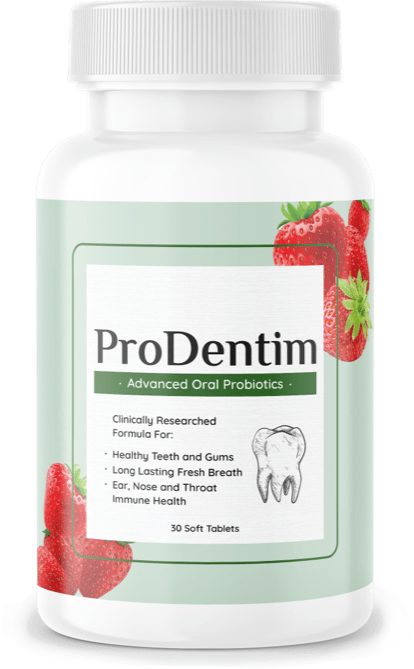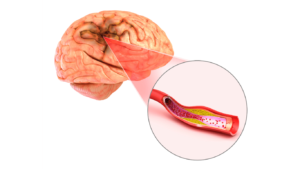Intro
The intricate relationship between our dental health and overall wellness is a fascinating subject that is garnering increasing attention within the medical community. Far more than just a cosmetic concern, the state of our teeth and gums can serve as a window to our general health, influencing and reflecting it in numerous ways. Emerging research, including a notable study published in the Springer Nature publication, underscores the importance of oral health not just for a radiant smile, but for a healthier, happier life.
Understanding the Link Between Oral Health and General Health
For example, the inflammation and infection from periodontal disease are linked to a heightened risk of heart disease, illustrating how ailments in the mouth can influence distant organs. This relationship is not unidirectional; systemic conditions like diabetes can exacerbate oral health issues, further complicating the web of health interconnections.
Oral bacteria, when imbalanced due to poor dental hygiene, can migrate into the bloodstream through inflamed gums, potentially leading to systemic inflammation, a known precursor to various chronic conditions. This insight into the microbial gateway that our mouth represents sheds light on the profound effects that oral health can have on our systemic health. It's not just about avoiding cavities; it's about safeguarding our cardiovascular, metabolic, and even cognitive health through diligent oral care.
Moreover, the interaction between oral health and systemic diseases highlights the importance of preventive care and early intervention. Recognizing the signs of gum disease or tooth decay can lead to prompt treatment, mitigating the risk of more severe health issues. This interconnectedness underscores the necessity of a holistic approach to health care, where dental well-being is integrated into the broader perspective of maintaining overall health. Thus, fostering a healthy oral environment goes beyond the mouth, supporting a robust, disease-resistant state of well-being that enhances life quality and longevity.
The Role of Good Bacteria in Oral Health
In the realm of oral health, the presence of beneficial bacteria is a key factor in maintaining a balanced and healthy oral microbiome. These friendly microorganisms are instrumental in warding off harmful bacteria and fungi that can lead to common dental issues such as tooth decay and gum disease.
The groundbreaking study featured in the Springer Nature publication illuminates the pivotal role these beneficial bacteria play in dental health, revealing that individuals with a higher population of good bacteria in their mouths often experience fewer dental problems.
This intricate microbial ecosystem within our mouths does more than just protect our teeth and gums; it serves as the first line of defense against pathogens that could otherwise enter our bloodstream and impact our overall health.
By fostering the growth of good bacteria, we support a protective barrier that not only preserves the integrity of our oral cavity but also contributes to our systemic health. This insight into the beneficial aspects of oral bacteria marks a shift in how we perceive and approach dental care, emphasizing the importance of maintaining a healthy balance of microorganisms. Engaging in practices that encourage the proliferation of these beneficial bacteria, such as proper oral hygiene and the use of specific probiotic products, can significantly enhance our dental health and, by extension, our general well-being.
Testimonials on the Impact of Dental Health on Well-being
Personal anecdotes vividly illustrate the transformative effect of prioritizing dental health. Mark, a 42-year-old software developer, experienced a remarkable change in his life after tackling his periodontal disease. "For years, I struggled with swollen, bleeding gums. It affected my work and social life because I was always self-conscious," he recounts. After undergoing gum treatment and improving his oral hygiene routine, Mark noticed an astonishing turnaround not only in his dental health but in his overall confidence and social interactions. "It's like I'm a different person. My mouth feels healthier, and I'm more outgoing and happier," he shares.
Emily, a 28-year-old graphic designer, tells a similar story of transformation. "I had recurrent cavities and was always wary about what I ate or drank. It was mentally draining," she admits. After adopting a comprehensive dental care routine that included the use of probiotic products, Emily observed a significant decrease in dental issues. "Not only have my dental visits become less frequent, but my anxiety around eating has vanished. I feel liberated," she states.
These testimonials offer a glimpse into the profound effects that dental health can have on individuals' lives. By addressing oral health issues, people like Mark and Emily have not only improved their dental condition but have also unlocked higher levels of well-being and life satisfaction, underscoring the undeniable connection between a healthy mouth and a flourishing life.
The Impact of Dental Health on Mental and Emotional Well-being
Dental health has a profound influence not just on our physical state, but on our mental and emotional well-being as well. The discomfort and aesthetic concerns associated with dental issues like cavities, gum disease, and tooth loss can significantly detract from one's self-image and confidence. This erosion of self-esteem often manifests in daily life as reluctance or avoidance of social situations, due to embarrassment over one’s dental appearance or breath. The psychological burden of persistent dental pain or discomfort further compounds this effect, potentially leading to heightened levels of stress and anxiety.
Such emotional turmoil can have far-reaching consequences, influencing personal relationships, professional opportunities, and overall life satisfaction. The fear and anxiety associated with dental problems can also deter individuals from seeking necessary treatment, creating a vicious cycle of worsening dental health and mental distress. Conversely, taking steps to address and prevent dental issues can have an uplifting effect on one's mental health.
Achieving a healthy, confident smile can restore self-esteem, reduce anxiety around social interactions, and alleviate the mental burden of chronic dental discomfort. Through this lens, the pursuit of dental health becomes not only a matter of physical well-being but an essential component of emotional and psychological self-care. Engaging in regular dental care practices and addressing issues as they arise is key to breaking free from the negative impact of dental health on mental and emotional well-being, paving the way for a happier and more fulfilling life.
How Probiotic Products Can Promote Dental Health

The burgeoning field of probiotics is revealing exciting possibilities for oral health. Beneficial bacteria, the stars of probiotic formulations, play a crucial role in establishing a healthy balance within the oral microbiome. This equilibrium is essential for fending off the harmful bacteria that contribute to common dental issues, such as gum disease and tooth decay. Probiotic products, ranging from certain yogurts and fermented foods to specialized oral health items like mouthwashes and lozenges, introduce these friendly bacteria into the oral environment.
By integrating probiotics into one's daily regimen, individuals can bolster the defenses of their gums and teeth. These beneficial microorganisms compete with pathogenic bacteria, limiting their ability to cause disease. Furthermore, probiotics are known to produce substances that have antimicrobial properties, adding another layer of protection against oral pathogens. Regular consumption or use of probiotic products can lead to a reduction in plaque formation and a lower risk of periodontal disease, showcasing the direct benefits these microorganisms have on dental health.
Additionally, probiotics play a role in neutralizing bad breath, also known as halitosis, by targeting the sulfur-producing bacteria that often cause it. This not only enhances oral health but also contributes to greater confidence and social comfort. Embracing probiotics as part of dental care routines opens up a promising avenue for natural, preventive measures against oral health issues, complementing traditional dental hygiene practices. Through continuous research and innovation, probiotics are set to become an integral component of holistic dental care, offering a simple yet effective strategy for maintaining oral health and, by extension, contributing to overall well-being.
Practical Tips for Maintaining Optimal Dental Health
Achieving and maintaining prime dental health necessitates a multifaceted approach that extends beyond the fundamentals of brushing and flossing. Regular dental check-ups are critical, as they allow for the early detection and treatment of potential issues before they escalate. A diet that supports dental health is equally important; incorporating foods high in vitamins and minerals while minimizing the intake of sugars and acids can significantly reduce the risk of tooth decay and gum disease. Staying well-hydrated is another key factor, as adequate saliva flow plays a vital role in washing away food particles and neutralizing acids that can harm tooth enamel.
The role of probiotics in oral health should not be underestimated. Including probiotic-rich foods in your diet, such as yogurt and kefir, or taking supplements, can support the balance of beneficial bacteria in the mouth, contributing to a healthy oral microbiome. This can lead to decreased plaque accumulation and a lower incidence of gum disease.
Good oral hygiene practices form the cornerstone of dental health. Brushing teeth twice daily with fluoride toothpaste and flossing at least once a day helps to remove plaque and prevent the buildup of tartar, which can lead to cavities and gum disease. Additionally, consider the use of an antimicrobial mouthwash to reduce bacteria that brushing and flossing might miss.
By adhering to these guidelines, individuals can proactively contribute to their dental well-being. Embracing a holistic approach that combines regular dental care with mindful lifestyle choices can pave the way to achieving not only a healthier mouth but also enhancing overall health and well-being.
The Future of Dental Health: Trends and Innovations
As we look toward the horizon of dental health, emerging technologies and evolving methodologies promise to redefine what's possible in oral care. The advent of artificial intelligence (AI) in dentistry is set to streamline diagnostics and treatment planning, making it faster and more accurate. AI algorithms can analyze dental images with unprecedented precision, identifying issues such as cavities, gum disease, and even early signs of oral cancer that might escape the human eye.
Simultaneously, advances in 3D printing technology are revolutionizing the creation of dental implants and orthodontic devices, offering custom solutions that are both more effective and more comfortable for patients. This bespoke approach to dental appliances ensures a better fit, quicker adaptation periods, and ultimately, more successful outcomes.
Another exciting frontier is the development of new materials for fillings and restorations that not only mimic the natural appearance of teeth more closely but also possess antibacterial properties, actively contributing to the health of the oral environment. These materials could significantly reduce the recurrence of cavities in treated teeth.
Moreover, the potential for integrating advanced biotechnologies into oral health care is vast. Research into regenerative dental treatments, such as using stem cells to repair or even regrow damaged tooth structures, is underway. While still in early stages, these innovations could one day make tooth loss a thing of the past.
On the preventive side, the exploration of novel probiotic strains specifically targeted at oral health issues is expanding. These probiotics could offer more personalized and effective solutions for maintaining a balanced oral microbiome, further preventing dental diseases.
These advancements signal a future where dental care is more personalized, more effective, and more integrated with our overall health than ever before. As research continues and these technologies mature, we stand on the brink of a new era in dental health that promises not just brighter smiles, but better health outcomes for individuals around the globe.






